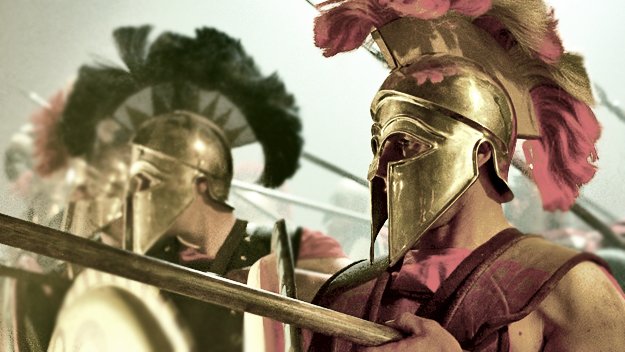

| Visitors Now: | |
| Total Visits: | |
| Total Stories: |

| Story Views | |
| Now: | |
| Last Hour: | |
| Last 24 Hours: | |
| Total: | |
SPARTANS: Last Stand of the 300 – Battle of Thermopylae
Monday, August 19, 2013 5:55
% of readers think this story is Fact. Add your two cents.
Modern writers have used the Battle of Thermopylae as an example of the power of a patriotic army defending native soil.
A Greek force of approximately 7,000 men marched north to block the pass in the summer of 480 BC.
The Persian army, alleged by the ancient sources to have numbered over one million but today considered to have been much smaller (various figures are given by scholars ranging between about 500,000 and 350,000), arrived at the pass in late August or early September.
The vastly outnumbered Greeks held off the Persians for seven days (including three of battle) before the rear-guard was annihilated in one of history’s most famous last stands.
Watch the video: – Last Stand of the 300 – Battle of Thermopylae

King Leonidas
After the second day of battle a local resident named Ephialtes betrayed the Greeks by revealing a small path that led behind the Greek lines.
Leonidas, aware that his force was being outflanked, dismissed the bulk of the Greek army and remained to guard the rear with 300 Spartans, 700 Thespians, 400 Thebans and perhaps a few hundred others, most of whom were killed.
Both ancient and modern writers have used the Battle of Thermopylae as an example of the power of a patriotic army defending native soil.
The performance of the defenders at the battle of Thermopylae is also used as an example of the advantages of training, equipment, and good use of terrain as force multipliers and has become a symbol of courage against overwhelming odds.

The Spartans
After this engagement the Greek navy, under the command of the Athenian politician Themistocles, at Artemisium received news of the defeat at Thermopylae.
Since the Greek’s strategy required both Thermopylae and Artemisium to be held, and given their losses, the withdrawal to Salamis was decided.
The Persians overran Boeotia and then captured the evacuated Athens. The Greek fleet, seeking a decisive victory over the Persian armada, attacked and defeated the invaders at the Battle of Salamis in late 480 BC.
Fearful of being trapped in Europe, Xerxes withdrew with much of his army to Asia (losing most to starvation and disease), leaving Mardonius to attempt to complete the conquest of Greece.
The following year, however, saw a Greek army decisively defeat the Persians at the Battle of Plataea, thereby ending the Persian invasion.
If you like this story push the recomend story button
Thank you so much
Elias Fragakis




This is a very good video:
A Spartan story
http://www.mozalearn.com/Extra-Videos-A_Spartan_story-216876
Smith2015
Very good.